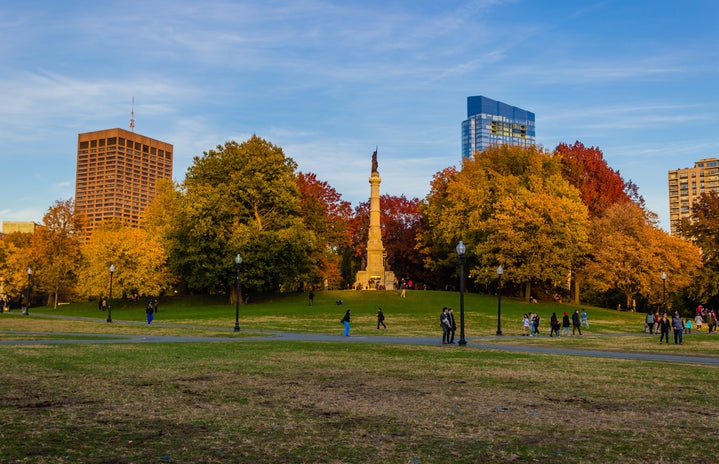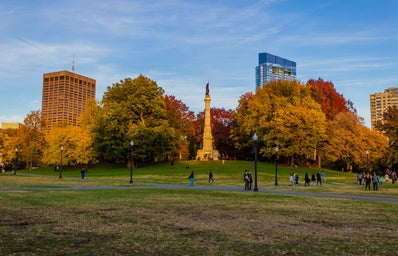On Sept. 14, ballots opened for the 2021 preliminary mayoral election. Five candidates were listed on the ballot: Kim Janey, Michelle Wu, Annissa Essaibi George, Andrea Campbell, and John Barros. From the start, this set of choices proved special; each and every candidate is a person of color.
Following this initial round of voting, the contenders narrowed to only two: Michelle Wu and Annissa Essaibi George. According to WCVB Channel 5, Wu was the ultimate frontrunner with 33% of voters — or 35,888 votes. Even though George was second overall, she trailed behind Wu rather considerably, rounding up 22% of voters — or 24,186 votes.
Although both Democrats and members of the Boston City Council, Wu and George have vastly different stances on a plethora of topics. The homepages of the campaigns for both candidates detail their approaches to a multitude of similar issues: climate change, affordable housing/homelessness, educational access, public health and safety, transportation, and a category both refer to as “economic justice and workers’ rights.”
Wu has taken a more progressive approach to most issues while George seems the more centristic of the two. In Boston 10’s interview with former State Representative Marie St. Fleur, she expresses the issues the average Bostonian may have with each option. St. Fleur details the possible issue with George’s idea of adding more officers to the Boston Police Force because she doesn’t believe that “militarizing communities of color is the transition [Boston citizens] are looking for.” On the other hand, St. Fleur is concerned about the “freebies” Wu plans to provide, including free transportation within Boston city limits.
One thing is definite: Wu and George will need to make their plans clear to prospective voters prior to November 4th. The next voting period of the mayoral race will take place on this date. Wiith 45% of voters in the preliminary round choosing other candidates and a higher turnout expected in November, no result is guaranteed.
Both candidates struggled in the first round to secure votes from Black Bostonians; most of these voters went with either incumbent Mayor Kim Janey or Boston City Council member Andrea Campbell, both Black women.
Regardless of who pulls ahead in the end, history will be made in Boston’s Mayor’s Office. Prior to this election, Kim Janey served as acting mayor for 5 months. She began her term in late March of 2021, when elected Mayor Martin “Marty” Walsh accepted a position as the United States Secretary of Labor under the Biden administration.
So even though Boston’s mayor has been a Black woman since March, Bostonians have never elected a woman of color to this office. According to the 19th News, no person of color has ever been elected as mayor of Boston, either. The only Bostonian mayors to ever be elected have been white men.
In recent years, many have reflected on the importance of representation in all areas: the media (everything from “Moana” to the first Black Bachelorette on ABC), the classroom (teachers that look like their students), and politics (Kamala Harris as the first WOC Vice President).
We are about to have a metaphorical front row seat to the making of local history here in Boston with either Michelle Wu or Annissa Esaibi George as mayor. I implore all readers to engage in the process, whether that be reading up on the stances of both candidates, attending one of their local rallies, or registering to vote here in Boston.

